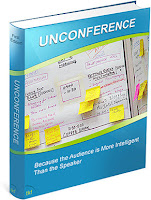Kingston, June 24, 2007
Taking Your Initiatives to the Next Level
Terry Fallis, Kate Morgan and Ian Hull
Terry Fallis - Thornley Fallis
- started Inside PR podcast (Joseph Thornley was already blogging)
- doesn't script heavily; decides in advance what they want to talk about, but these are topics they have been talking about for a while
- weekly show that comes out at the same time every week
- familiar format, which they change up periodically
- has done various things to promote the podcast; recently created a Facebook page
- if you build it, people don't necessarily come. You have to promote it.
- has had 25-30 speaking engagements to speak on social media even though he has only been podcasting for a year
- no sales pitch behind why they did it
- bought into Terry's model
- one podcast for core group of lawyers who send them work - snippets they know will be helpful
- co-hosts with his partner in his firm
- other podcast for the general public for a broader audience
- before podcasts came into their world - being a good colleague, giving back - law of the Internet: if you give something for free, it will come back to you ten-fold
- did not want to add anything else to their day. They were doing it twice a week; it was becoming overwhelming. Changed to sell the idea to the other 15 lawyers in their firm, now they are all podcasting.
- they don't want to just be on a treadmill keeping the business running; they want to do something interesting
- a year ago, 14 listeners; now up around 100
- trying to showcase their passion
- getting 1200 hits on their blog in any given week; started blogging because they had to; all lawyers take turns blogging
- subjects e.g. how to do a will challenge trial
- Hull & Hull TV - new addition - public friendly area of their marketing
- but they keep going back to the initial model of the podcast and keep building on it
- now have a book - another "feed"
- newsletter - sent out 4 times a year, often referred to in their podcast - taught to them by Terry Fallis; the podcast set up by Kate Morgan
- plant the seeds: book, Tv - eventually they will get 2-3 new listeners to the podcast
- in the field: they don't share - competitors are not going to tell people to listen to their podcast
- originally sent out iPods to 150 people (no discount from Apple!) - most people gave them away - pre-loaded so that lawyers would not have to learn how to use iTunes, offered to re-load for them - some people have iTunes for personal, another for business
- started working with Hull & Hull LLP on marketing
- started from scratch learning what podcasting is
- can use it as a distribution channel to get out whatever information you want to distribute
- need to be talking about something important to you
- sharing legal knowledge, not legal advice, to other lawyers
- conveys credibility - separates them from other lawyers who are not working in this space
- leveraging this into more business, more speaking engagements
- if you meet someone in an off-line context, you are more likely to listen to their podcast
- if you are looking for legal advice, you are more likely to consult with someone you are familiar with
- it all works together
- they are looking to highlight their legal skills
- all comments they get are very personal law-related comments from the public - people are desperate for this advice - a direct path to looking for real legal advice that people are willing to pay for - people are hungry for knowledge and advice
